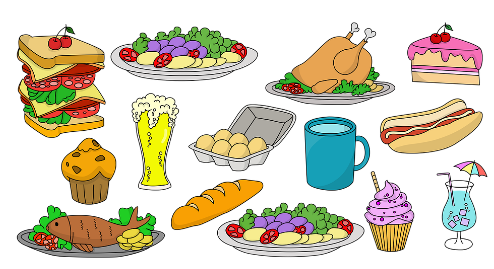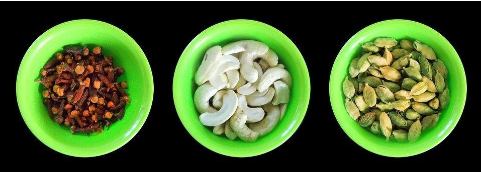Every extreme leads to a problem. So it is with overeating. You might say, is it that scary ? Moreover, it has happened to everyone on holidays and other occasions to eat more. That's right, but nothing should be overdone.
Eating a large amount of food leads to a lot of problems such as discomfort and heaviness, gas, stomach cramps and sometimes can even lead to the Emergency Department.
Hyperphagia
Overeating is not always a harmless condition after irregular eating, feeling hungry or festive mood. Trampling on food can be a sign of an emotional or psychological problem, associated with dissatisfaction, bad mood, personal dramas.
In cases where this is repeated, it is often considered to be a chronic process. And it almost always leads to impaired function of the stomach and urinary system.
In medicine, this is defined as a disease state and is called hyperphagia. In other words, it is pathological overeating, close to another eating disorder – bulimia, but those who suffer from it also vomit ingested food.
Symptoms and reactions to overeating
Fluid retention, flatulence and heaviness are among the most common signals that we have eaten more than we need. When meat, nuts or legumes predominated in the menu, swelling is more tangible.
In people with biliary problems, fat intake can cause a crisis . And in the general case, a hearty breakfast, lunch or dinner lead to drowsiness and fatigue.
In extreme conditions, when we talk about eating too much, digestive disorders, irritable bowel syndrome and cramps are inevitable. A chronic problem can lead to high blood sugar, blood pressure problems, heart problems and weight gain, which is followed by obesity.
Hyperphagia is dangerous because it brings with it a number of health problems. Along with those listed, hormonal disorders, joint diseases, risk of colon cancer, gallstones, heart failure, etc. are on the list.
How to deal with overeating?
The problem is quite serious and the sooner it is realized and measures are taken, the less risks it hides. When overeating is a one-time act, it is not so dangerous. One can take medication to calm the stomach, drink more water and take an active rest to feel dressed.
In most cases, however, people who overeat systematically need medical attention. And it's not just a nutritionist or a gastroenterologist. Such a condition necessarily refers to the competencies of a psychotherapist. Such reactions betray a psychological personality problem that is often difficult to resolve by the sufferer.
Some signs betray the patient's condition, such as:
- low self-esteem of the individual
- depressive and anxious thoughts
- lack of self-confidence
- restriction of social contacts
- night meals
- tendency to high-calorie and harmful foods
- hunger pangs
- disturbed sleep
- sudden weight gain
- unsuccessful alternation of different diets
- accelerated pulse
- respiratory complaints
- lack of desire for activity
- stomach pain, diabetes and others
Only some of the symptoms may be present. However, when more than the above are reported, it is already a chronic disease.
Stress also has a negative effect on eating habits. Therefore, one of the ways to try to cope on our own, if we are aware of the problem, is to reduce stress, to rely on more physical activity, walks in nature and to work on mood and increase self-esteem.
According to medical research, overeating mainly affects women, and even more worrying is that, along with bulimia and anorexia, it is becoming more common among teenage girls.
If parents suspect that their child has an eating disorder, they should be more alert to any mood swings, hiding food in the room, gaining weight, antisocial behavior, and other similar symptoms.
In adolescents the condition is always associated with psychological problems . It is imperative to have the girl's moral support and consultation with a specialist. When the cause of the depressive behavior is found, the way out of the anxious situation is closer. The self-esteem and the positive attitude of others towards the girl is part of the healing process and recovery .
Such behavior, involving the intake of more food, should not be blamed and approached with aggression, because this can complicate the situation. The other extreme of overeating is anorexia, which also poses great risks to the health and life of the sufferer.
How does Ayurveda help with eating disorders?
Ancient Indian knowledge of life is based on an understanding of its energies balance in the human body. Overeating is a manifestation of emotional breakdown and disturbed harmony, according to Ayurveda. The application of various useful practices and techniques for a healthy lifestyle can restore balance in the patient's body.
The easiest step is practicing yoga, in combination with exercises for proper breathing. Instructors recommend that overweight people perform the poses "Moon Greeting" and "Camel". They are suitable for restoring balance and dealing with digestive problems.
Indian healing power is also encoded in the rich set of herbal decoctions and spices. They affect the metabolism, increase metabolism and are useful for normalization of body weight .
Hot tea and procedures for warming the body with a steam bath and rubbing with herbal oils lead to harmony with the inner and surrounding world.
In addition, they aim to expel accumulated toxins from our body . The richness of spices and their skillful combination in Indian cuisine is very suitable for switching to a healthy diet. The healing enema and vomiting under the supervision of an Ayurvedic therapist are part of the purification stage.
Improving the overall health of the body and the overall change in lifestyle can begin after detoxification. Therapists use healing oil for this purpose, whose recipe has been preserved for centuries and keeps the secrets of ancient Indian healers.
Ayurveda rules of nutrition
Balance is the word that most accurately characterizes the Indian philosophy of life and food. Individual needs are paramount, but there are a few basic rules that can be followed by anyone. Hydration of the body is extremely important and a minimum of 8 glasses of water a day are mandatory.
The day must also start with a glass of warm water, after which breakfast should not be missed , but it is good to contain mainly fruits and vitamin-rich products. Lunch can be meat, dairy and spicy products.
Dried fruits, raw nuts or fresh fruits and vegetables, but in moderation, are suitable for afternoon breakfast. Dinner is light with more leafy vegetables or lean soups. Following these principles will ensure your health and positivism.




0 Comments